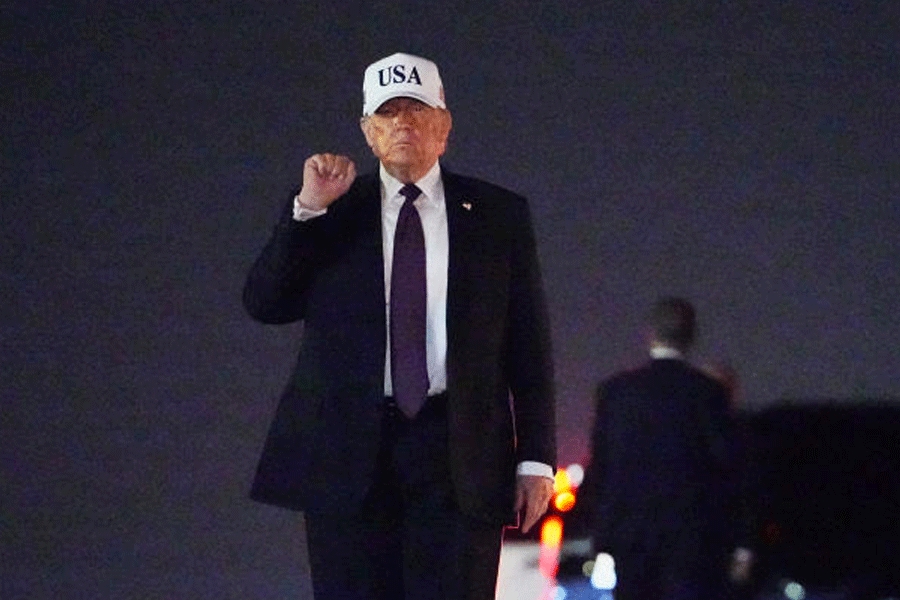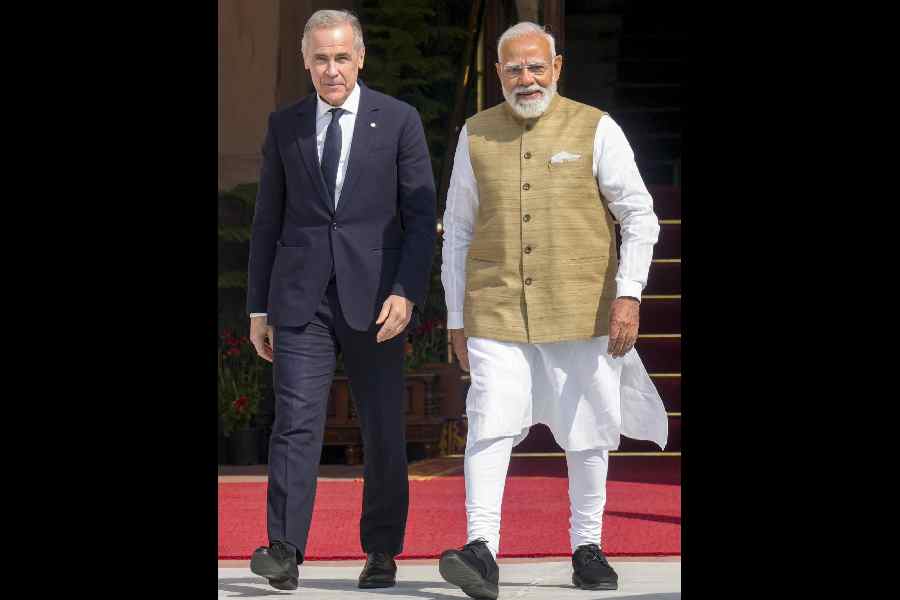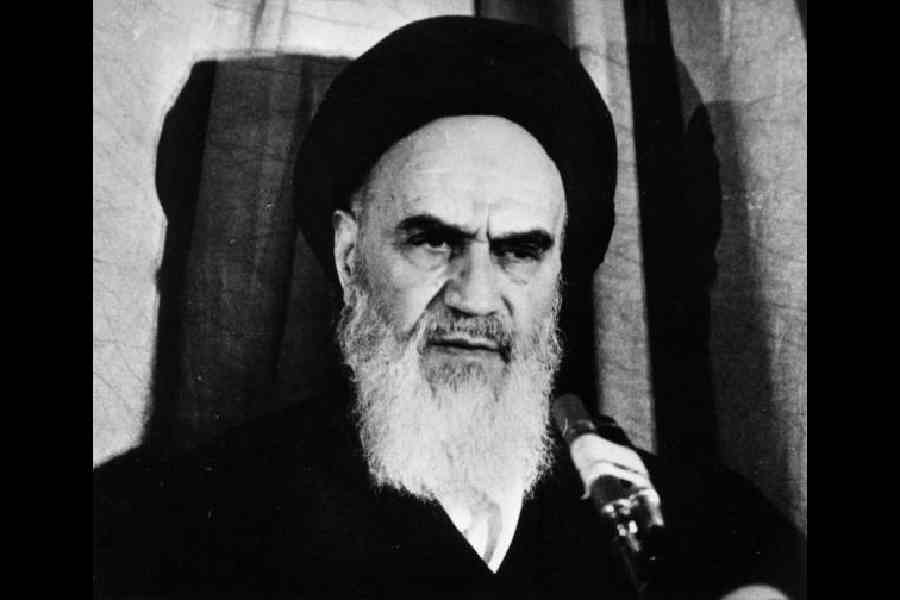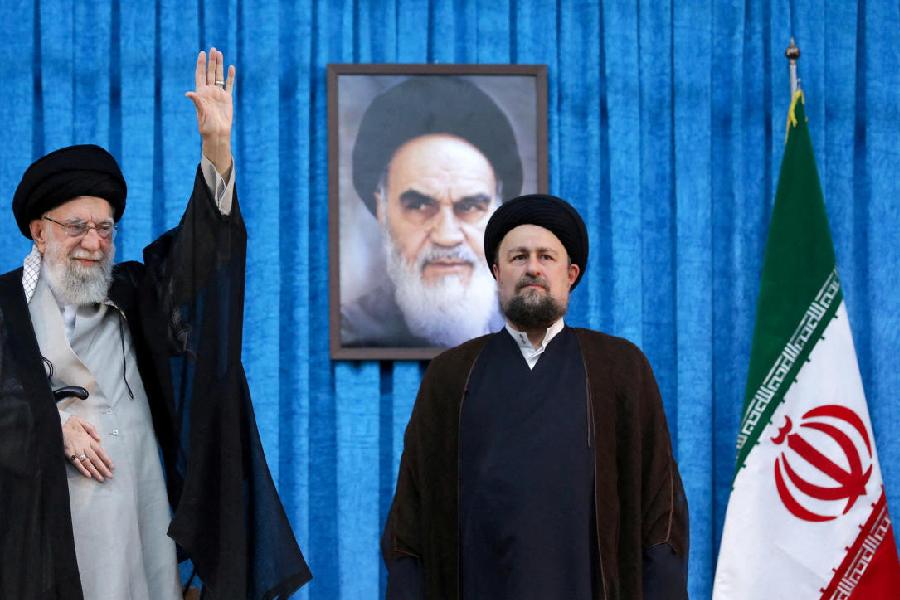 |
Bridgetown: Former New Zealand captain and India coach John Wright, who is now his country’s Elite Coaching Manager, spoke to The Telegraph on his years with the Sachin Tendulkars and also talked about the ongoing World T20.
The following are excerpts
Q Are you happy with the way the Indian team has moved on since your innings ended, five years ago?
A I follow the team closely, largely via the internet... I got to interact with the players when they last toured New Zealand (early 2009) and was quite impressed with the group... They looked and look very together and quite focused. At that stage, they weren’t No.1 in Tests and, to get there, had obviously been a goal... That has since been accomplished... The harder part, clearly, will be staying there. It’s one thing getting to the top of a mountain, quite another remaining there, because everyone wants to beat you. That was illustrated recently, in the home series against South Africa, where the team had to win in Calcutta to stay No.1... (After a pause) The players were challenged by my successor, Greg (Chappell)... And, that’s not a bad thing. It didn’t quite work out, but Gary (Kirsten) stays behind the scenes... I think (Mahendra Singh) Dhoni’s leadership has been impressive... As has been the development of Gautam Gambhir and the emergence of Suresh Raina... Virender Sehwag has, of course, gone on to another level in Test cricket... I’m not sure about his one-day game, though... Zaheer Khan is one I’m very impressed with. He’s had his ups and downs — I’d challenged him a lot — and has got to know just how important it is to be strong and physically fit. His stint in County cricket (Worcestershire, 2006) proved invaluable... When I look at him now, I see a professional cricketer.
You worked with some very big names...
(With emotion) Indeed, I had a fantastic group of senior players to work with... Sourav (Ganguly), Rahul (Dravid), the vice-captain... He had a big role to play... There was Sachin... Anil (Kumble), (Jawagal) Srinath... V.V.S. Laxman was the bridge between the older and the younger players... Then, we had the precocious challengers — Sehwag, Harbhajan (Singh), Zaheer, Yuvi (Yuvraj Singh), Mohammed Kaif... Dhoni came on to the scene very late in my innings. Kaif has fallen by the wayside, but the rest have turned into mature cricketers... They’re nicely on the right path and have risen to the challenge. There’s no dearth of world-class players.
Kirsten is seen as being in your mould... He’s happy staying in the background and isn’t keen on making headlines... Do you, too, feel the same way?
There are similarities, yes, but Gary’s probably a different coach and the team had been at a different stage when I took over (November 2000)... The way Gary operates — behind the scenes — is very important... The players have to understand that they’re the ones who’ll be doing it... I always felt that the players needed to be out in the front, not me... The only time when you really need to put yourself out in front is when the players need a little bit of a break, some breathing space... It’s important to give that space, for it’s tough being an Indian cricketer.
Looking from the outside, what do you think is special about Gary? Sachin keeps praising him, Sehwag has called him the world’s best coach...
Gary’s ability to connect with the players on an individual basis... One of the keys to being successful as a coach is man-management. Also, being able to find the key to unlock the potential of each player and, sometimes, it’s different from player to player. It appears to me that he has a good partnership with Paddy (Upton, the mental conditioning expert)... Obviously, the players have responded very positively and that’s credit to Gary and his support crew.
Who, for you, is an ideal coach?
I don’t think there is an ideal coach. However, he would be someone who can get the best out of his players... The ideal coach, I guess, would have to be judged by the results. Everyone’s different... A (Duncan) Fletcher, (John) Buchanan... One of my great mentors as a coach, or someone I learnt from, was Bob Simpson. And, Bob always talked about constantly encouraging the players to remember the spirit of the game; that cricket had to be played with passion and enjoyment... Also, that the coach had to help each player, either to make more runs or take more wickets or more catches and be excellent on the ground... You keep it very simple... At the international level, most players are mature and they are very aware of their own game and, indeed, are very much their own coaches... One of the things that we did in Test cricket, in my first couple of years, was to specialise fielding positions and that made a big difference. We caught better in the extremely important positions... (After a pause) The one other thing Gary brings to the table is that he has a very good understanding of the game... He was a very successful opening batsman and I imagine he is a big student of the game.
So, what had been your approach in the India dressing room, given that your coach’s innings started just months after the match-fixing scandal?
One of the first things I said to the boys was that a couple of things were very important to me and they would be non-negotiable... One was being punctual while turning up for practice and taking the bus to the ground... Nobody had the right to keep everybody waiting... Then, I'd said that it would be important if we trained like we were going to play. That way, we trained much harder. The other thing was that the team was most important. Sure, we were all individuals, but each one of us had to understand that we were there for the good of the team.
You started the business of having a theme...
Yes... Like in Australia, in 2003-04, we went with ‘change the trend’... That came from the boys. For the 2003 World Cup, it had been ‘now or never’... I was extremely lucky to have such a strong leadership group. Gary’s been fortunate as well... I had such a great bunch... You realise that more when you leave.
What is the most abiding memory of your years as the India coach?
Quite a few... Like the Test (against Australia) at the Eden, in 2001... The very next Test (Chepauk), too...Both were amazing... Then, the 2002 NatWest final, against England... Of course, the 2003 World Cup, when we made the final, was something special. Finally, I suppose the 2003--04 tour of Pakistan, which was an incredible experience. The really sweet moments were when we won Tests overseas. That changed a trend and allowed the boys to believe that they could win anywhere. Those wins lifted the team’s confidence enormously.
How did you and Sourav manage such good chemistry?
(Laughs) We’re both Cancerians... We trusted each other. It’s not that we didn’t disagree, but we wore our hearts on our sleeves... We are still very good friends... Sourav provided some of the things I couldn’t have — like leadership in a very Indian fashion, the encouragement given to the youngsters... He certainly wanted the team to be a team and that was exactly what I wanted. So, we had a lot in common... I was the first foreign coach and it was sort of being in the soup together and we were both very keen to come out successful.
Why is it that, despite having such a good relationship with you, Sourav had problems with Chappell and with Buchanan?
Well, it is hard to know. Sometimes, it boils down to character... Sometimes, the chemistry just doesn’t quite work. And, sometimes, you fit in more with some players/coaches than with others. Both coaches had very strong ideas, I would imagine. And, that’s all very good, but there are some things that you have to have common agreement on. When you don’t, the captain-coach relationship can become quite difficult. And, then, you win some and you lose some. If I couldn’t argue the point and convince Sourav that, perhaps, X is the one who should play and he was adamant about another player, then I hadn’t done my job very well as I couldn’t provide a good enough case for X. I'd argue, I'd provide information, but Sourav was the captain and he had to decide.
There can be only one boss, isn’t it?
The captain is the boss in a cricket team... Off the field, I think there is a case for the coach setting the culture and being in charge. But, there has to be continuity. I had the confidence that Sourav was happy with what was happening (off the field)... The preparations...
Do you envisage a situation where one can have an Alex Ferguson kind of a scenario, with the coach being all powerful?
A coach’s job is the coach’s job. I’m not in favour of a massive support staff either. I believe that one of the key roles for a coach is to be able to help in selecting the right captain. If you do that successfully, it makes your job so much easier. If you don’t have a good captain, don’t expect to have a world-class team. I was fortunate in that Sourav was already the captain when I arrived. He grew into the job... He learnt on the job, for we all make mistakes. Captains run cricket teams, the coach’s job is to assist him and provide leadership off the field.
They need to complement each other...
Exactly. If the captain and the coach start competing, it’s time to change one of them.
Do both captains and coaches have a shelf life?
Yes, they do. If you want to stay in the job after three or four years, you’ve got to be winning. If you are not, then you have to change things. If things don’t go too well, the captain may go first, with the coach getting another chance.
Some feel that you probably became too soft in your later years as the India coach. Did you actually change?
I coached exactly the same way... I refute that I was soft in the last years. In fact, I was even more desperate for success... I’d said to myself, before I started, that I wouldn’t stay on the job to be too soft. If the hard things had to be said, I’d always say them. Sometimes, that upset a few people, but the big thing was that I never let out anything talked about within the dressing room... It was very difficult for me, because it was hard having criticism levelled, when one couldn’t respond. The dressing room is sacrosanct and that’s where things stayed, even when I wrote my book (Indian Summers). I did not want to betray the players' trust.
For a while, Daniel Vettori seemed to fill all the roles. What’s your take on that?
Look, he’s a very powerful man in New Zealand cricket... I have an old-fashioned view, though... I believe selectors select, coaches coach and the captains captain. It’s very simple and makes everyone accountable.
Today, who would you pick as the World T20 finalists?
(Pauses) It’s a difficult question. I suppose Australia would be somewhere in that mix and you’ve got India... South Africa, too, have a good team... India have started well, which is important. I’m also very interested to see how far New Zealand goes.
As somebody from the old school, what are your views on T20?
It has been great for cricket and great for the fans. You must have a game where people want to walk through the gates and watch. That doesn’t mean I’ve gone off Test cricket, because that’s the game I really love to watch. I just hope we get the balance right... There’s a place for all three forms, though the one-day game needs a little bit of tinkering. It’s wonderful to have a World T20 because it gives a chance to some of the other nations, like Afghanistan, to compete with the very best.
Finally, your message for Dhoni and Kirsten...
Keep taking it one at a time and build on the momentum... Focus on playing your best game and not worry too much about the opposition... If the players trust their abilities and take this confidence forward, then it will be tough to beat India... Actually, tough, in any case.










